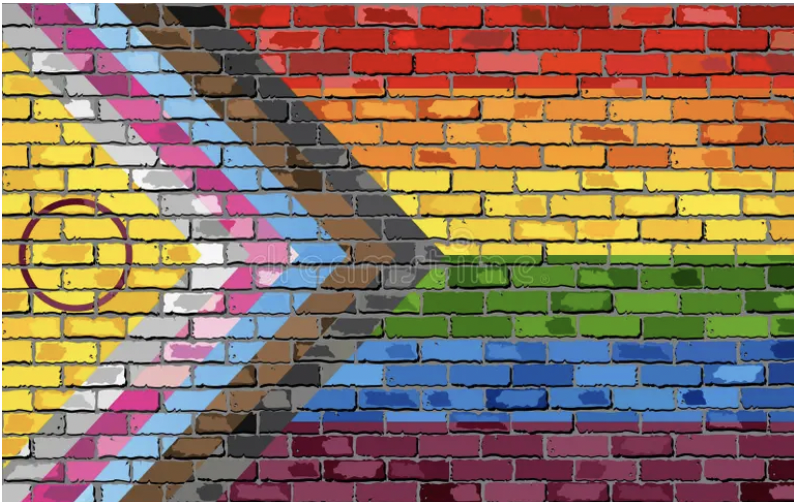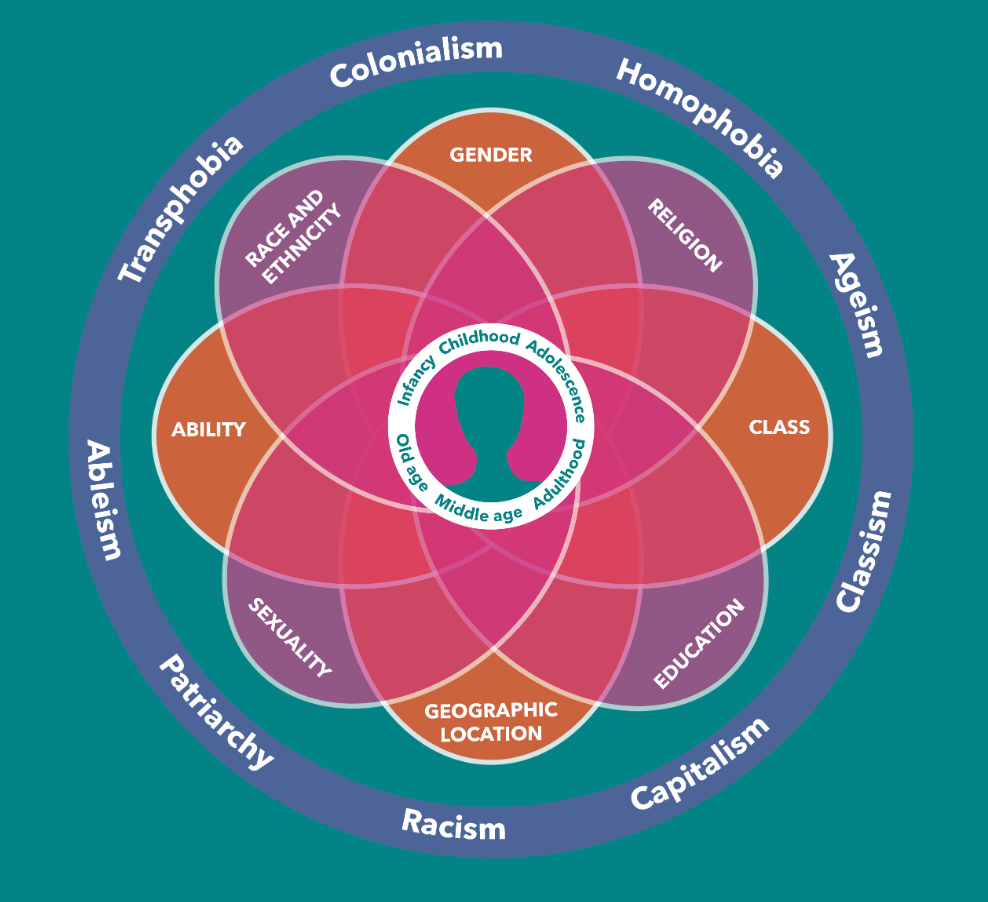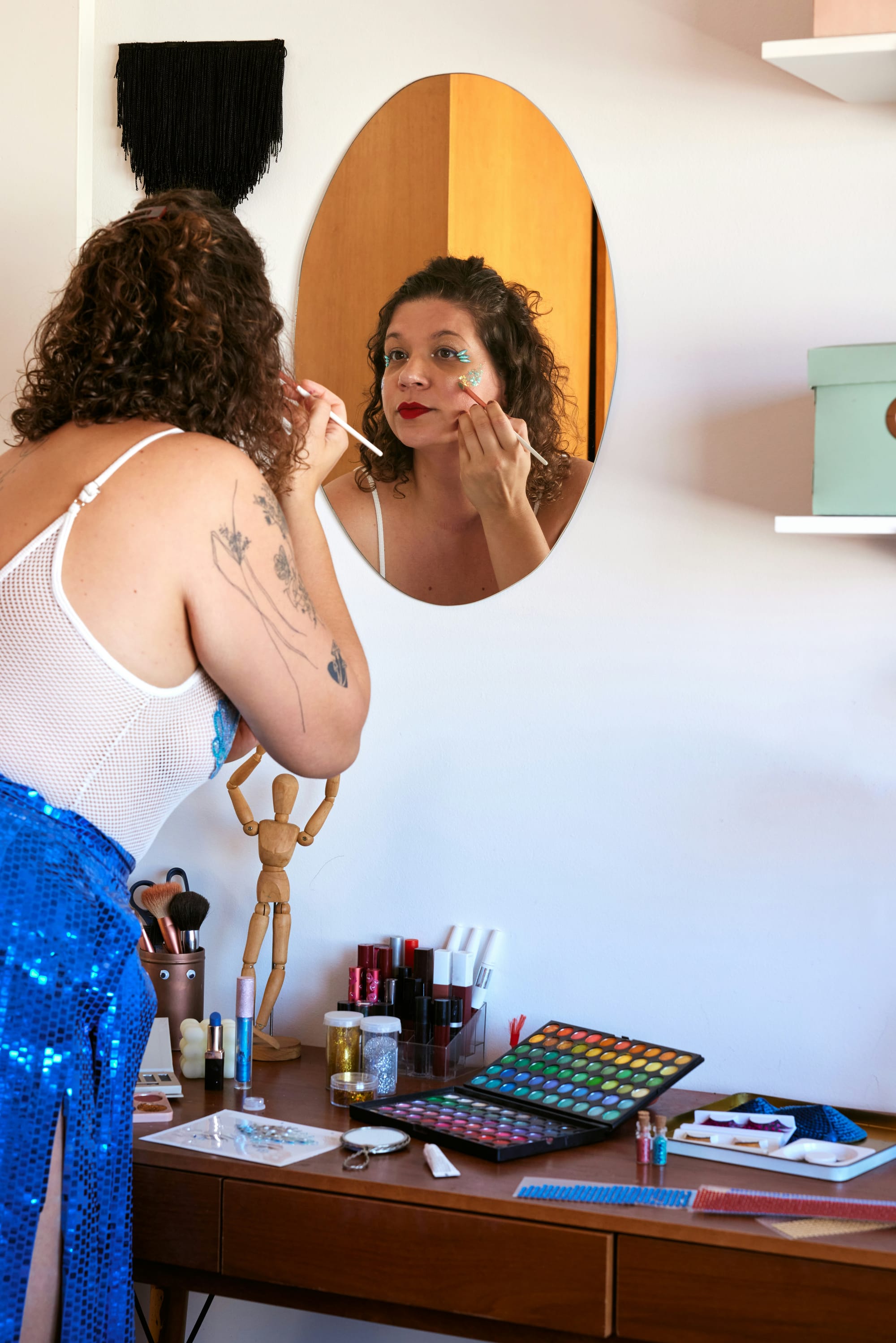We all matter

The next few posts are going to shift from looking at menopause through a physical and medical lens to consider the social and cultural implications of how the menopause transition is viewed and experienced by individuals and groups. At certain points the information might be challenging, but I promise it will be enlightening, and I believe these ideas are essential for us to consider at this point in our nation’s history more than ever.
Every person’s experience of menopause is both universal and unique. For each of us the symptoms and signs of menopause will differ and will range on a spectrum from mild to severe, frequent to infrequent, unmanageable to unnoticeable.
Each individual experience of premenopause, perimenopause, and postmenopause is/was/will be distinct because of the causes and conditions of that person’s life, both historical and contemporary. In other words, our experience of menopause is affected by the following:
· our diet
· level of physical activity
· quality and quantity of social connection
· family history
· education
· income levels
· access to healthcare
· our level of health literacy
· racial/gender congruence between our health professionals and ourselves and/or cultural competence and humility from our health professionals
· our religious/spiritual community
· the kind of work we do, the contribution we make to our community
· neighborhoods we grew up in and live in now
· past and current exposure to environmental toxins
· whether or not we are disabled in some way
· our gender identity and sexual orientation
· our skin color
· familial, peer, and cultural communications about us, our value and health generally, and menopause specifically
I would invite you to consider, looking at this list, how many of these factors are within our individual control. At first glance it may appear that things like what we eat, how much we exercise or spend time building relationships, how much education we have or where we live, all comprise personal choices that we have the freedom to make.

For some of us, the freedom to make those choices may be a reality. But for a large percentage of American citizens—even those of us who are privileged enough economically and racially to have the freedom to make more choices for ourselves—most of these factors that contribute to our health and well-being are completely out of our control.
Even the wealthiest among us might find that we have been living downstream from a corporation dumping chemicals into the river that runs behind our property. The college-educated may be unable to get work with decent health insurance or have a job that keeps them running eighty hours a week, unable to find time for exercise, nutrition, social connection, or sleep. Those of us who are White, cisgender, and heterosexual can still be isolated, economically impoverished, living in food deserts, lacking access to educational resources and neighborhoods with green spaces.
And none of us have control over our genetics, skin color, sexual orientation, gender identity, physical disability, or the families, neighborhoods, religious communities, or cultures we were born into and from which we suffer as well as benefit.
While the systems that are constantly running in the background seem to be simply the sea we swim in, and as such, impersonal, the impact of these systems on individual beings and groups of beings is profound. I would argue that if these systems are being perceived by any or all of us as solely impersonal rather than as intimately personal, we are not, collectively, perceiving them accurately at all.
For example, the healthcare system is impersonal in that there is no one individual or entity that is personally willing or able to take responsibility for what is happening to you or your loved one. Yet the effects of the system are radically personal, i.e., you or a loved one may or may not be able to access and receive lifesaving or health supporting treatment depending on where you are placed inside the system.

There is a tiny group of people who benefit from how these systems work, and they expend an enormous amount of time, energy, and money in perpetuating and shoring them up. And there are many other groups of people and living beings who are oppressed and harmed on a daily basis by these systems on individual and group levels.
In mainstream American culture the dominant systems under which we labor include:
· Patriarchy (a system of societal and governmental organization that concentrates and keeps power in the hands of men and away from women)
· Capitalism (an economic system characterized by private ownership of the means of production, where resources and businesses are owned and operated by individuals or corporations, with the goal of generating profit and driven by market forces of supply and demand)
· Neoliberalism (a philosophy undergirding and perpetuated by capitalism that emphasizes self-reliance, efficiency, individual responsibility, competitiveness, and belief in the benefits of unregulated corporations and financial markets)
· Theocracy (a system of government that is legitimized and derives its authority from a particular religion or god)
Essential aspects of these systems include:
· Racism (specifically the myth of White supremacy)
· Misogyny (the assumption that women are inferior beings whose powers of procreation are meant to be exploited for patriarchal and capitalist agendas)
· Heterosexism (this includes misogyny and the belief that there are two genders rather than a spectrum of gender and sexual identities)
· Ableism (the belief that anyone who is not created in the image of the “ideal” is inferior, and in extreme cases, is not worthy of life)
There are probably more ‘-isms’ that I am missing, but these are the umbrellas under which most abuse and oppression is rationalized, if the term “rational” can be applied to any of it.
Within the logic of a capitalist, neoliberal, theocratic patriarchy, the “ideal” that must be met for full citizenship is that one must be a White, cisgender, heterosexual, able-bodied man who was born with access to wealth, higher education, and the echelons of power. This man is either Christian or sympathetic to theocratic values that would make all those who do not fit this ideal image subservient to those who do in the name of a “god” who is, predictably, also subservient to their views and desires. Those who fit this extremely narrow and rigidly defined “ideal,” comprise the dominant, most materially powerful, group in American society, regardless of the fact that they comprise less than 30% of the population (Srikanth, 2021).
In general, White men currently compose about 30% of the American population. The percentage that meets the full requirements of the “ideal,” i.e., a heterosexual, cisgender, wealthy, able-bodied, and theocratically-oriented male, is presumably much smaller. Furthermore, not every White man who fits the ideal allies himself with the small subset of this group who seek to perpetuate oppression and maintain their monopoly on power. Some identify as belonging to or allying themselves with other racial, cultural, or social groups, for example, Indigenous or abortion rights groups. Some men of color ally themselves, and are permitted to ally themselves with, the dominant group even though they do not represent the ideal in one or more significant ways. Some White women do the same.
What does this have to do with menopause?
For one thing, as people move through the menopause transition into elderhood, they tend to become increasingly connected to their power. In particular, they tend to refuse to put up with so much bullshit and start using their voice to advocate for justice. What are the implications of this for us personally and collectively as we become elders? Who and what do we want to use our power for?

For another thing, race, intersectionality, and our identities and life circumstances affect our individual experiences of the menopause transition. The next couple of posts will be devoted to looking at this.
It's important to understand that our individual identities emerge at the confluence of
explicit (readily observable and/or assumed) characteristics that we share with multiple groups within our society
AND
implicit and explicit ways in which we situate ourselves, identifying and understanding ourselves to be members of certain groups.
For example, one person may be a gay, Black, Islamic male doctor who lives in a gated community within a conservative urban suburb, and another may be a White, queer, single mother of three with a high school education living and working in a liberal city center. Looking at the Black, male doctor, you might assume that he is Black and cisgender male. But would you know he’s a doctor or that he considers himself a Muslim? Is there confusion about his political affiliation because of the juxtaposition of where he lives with his race and sexual orientation?
Looking at the White person would you know she is queer or a single mother? Is she politically liberal or conservative? Would she lobby for reproductive rights or fetal rights?
How we experience ourselves and our lives has much to do with how we identify ourselves, who we align ourselves with, and, crucially, how others perceive us and behave toward us based on those perceptions.
· Who are you?
· What are the multiple groups you personally identify with?
· How do you think others identify you?
· What cues or information do you rely on to identify others?
· How are you impacted by the larger culture because of the identities you have? Where do you hold power and where are you disempowered?

References
Srikanth, A. (2021, May 26). New study finds white male minority rule dominates US. Changing America. https://thehill.com/changing-america/respect/diversity-inclusion/555503-new-study-finds-white-male-minority-rule/
Image References
https://freerangestock.com/photos/47589/businessman-holding-earth-globe--globalization-concept.html